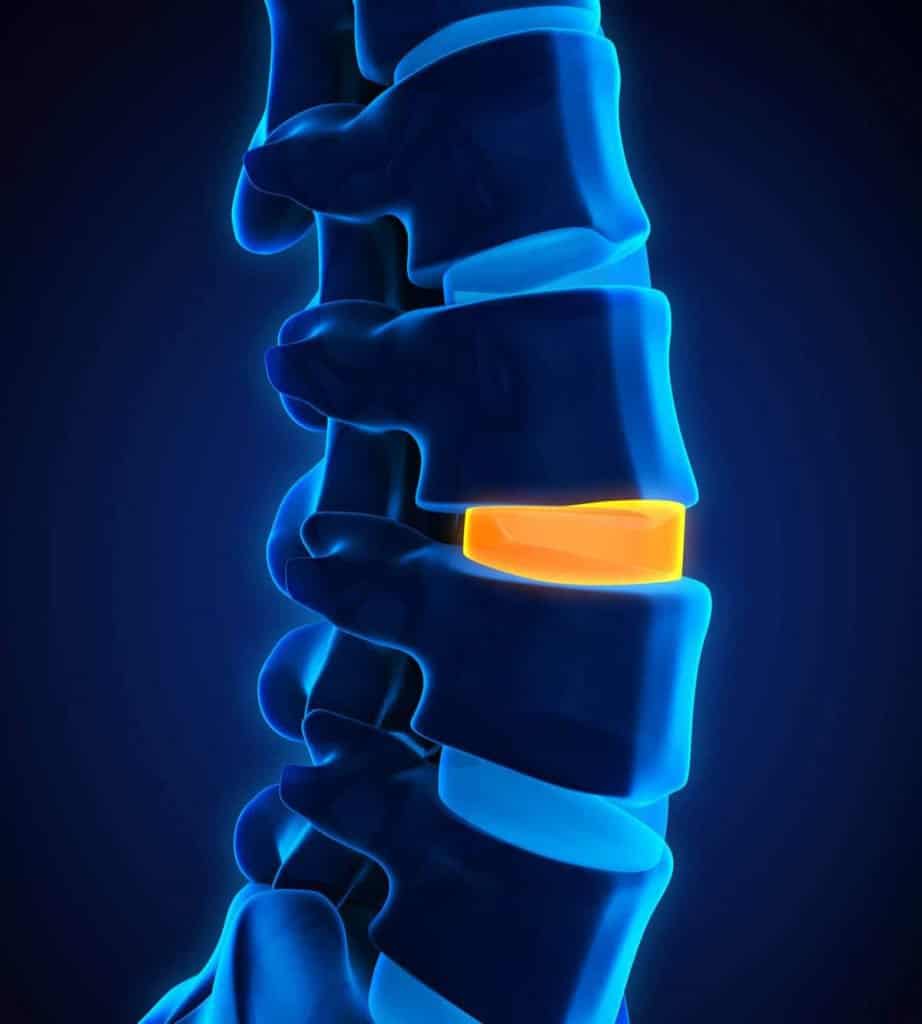2550 Compass Rd., Unit H, Glenview, IL 60026
Back in Motion with Stem Cell Therapy for Degenerative Disc Disease
Similar to how a tire tread wears with time and miles driven, our discs break down as we age. The pain from degenerative disc disease is often nagging, uncomfortable, and even debilitating. At RegeneVive Health and Wellness – we understand your pain, and we’re here to educate, inspire, and treat you for this challenging condition. Let’s discuss the details regarding DDD; how common it is, how to prevent aggravating your condition, and what stem cell therapy for degenerative disc disease may be able to do for you.
Understanding Degenerative Disc Disease
Degenerative disc disease (DDD) is a chronic condition that affects millions of people worldwide, and it is a leading cause of low back pain. In the United States, it is estimated that over 3 million cases of DDD are diagnosed each year.
The condition is characterized by the gradual degeneration of the discs between the vertebrae in the spine, leading to symptoms such as pain, stiffness, and reduced mobility. Flare-ups can be especially debilitating, making it difficult for patients to perform daily activities, work, or even enjoy hobbies.
It is important for those suffering from DDD to explore all possible treatment options in order to manage their symptoms and improve their quality of life.
Get an appointment
Factors that Aggravate or Accelerate Disc Degeneration
Disc degeneration is a natural part of the aging process. As we grow older, the discs between the vertebrae in our spine lose water content, making them less flexible and more prone to damage.
However, certain factors can accelerate this degeneration. Poor posture, heavy lifting, and demanding athletic activities can all put additional strain on the spine, leading to greater wear and tear on the discs.
Other factors that can aggravate disc degeneration include obesity, smoking, and a sedentary lifestyle. Genetics can also play a role in the development of degenerative disc disease.
The symptoms of DDD vary from person to person, but common ones include back pain, neck pain, leg pain, arm pain, numbness, tingling, or weakness.
These symptoms can be debilitating and may require you to modify your daily activities to manage your pain. DDD can significantly impact a person’s quality of life, making it difficult to perform daily activities, work, or even enjoy hobbies.
The Importance of Managing Inflammation
Managing inflammation is essential in treating DDD because it is at the core of the symptoms. Inflammation can cause pain, swelling, and stiffness in the affected area, making it difficult for patients to perform daily activities.
While traditional treatments like medication and physical therapy can help manage the symptoms, they cannot repair the damaged tissue in the discs.
A Promising Solution: Stem Cell Therapy for DDD
Fortunately, stem cell therapy has emerged as a promising treatment option for DDD. Stem cells have the ability to repair and regenerate damaged tissue, including degenerated discs.
According to a study published in the Journal of Translational Medicine, stem cells can promote disc regeneration and improve disc height, which can alleviate symptoms of degenerative disc disease.
Another study published in the Journal of Stem Cell Research & Therapy found that stem cell therapy was effective in reducing pain and improving function in patients with degenerative disc disease.
Keep in mind that at the core of degenerative diseases, we find inflammation. Furthermore, stem cell therapy for degenerative disc disease works well because of stem cells’ ability to target and reduce systemic inflammation. The reduction in inflammatory chemicals helps patients gain back their range-of-motion, strength, and function over time.

How Stem Cell Therapy Works for DDD
Stem cell therapy for degenerative disc disease involves injecting stem cells directly into the affected area of the spine. Research shows that stem cells do show promise in helping regenerate damaged discs. A very recent 2023 review study published in Current Stem Cell Research and Therapy concluded that over the last ten years, stem cell-based therapies have been heavily researched for the treatment of disc damage, and promising results have been obtained by various studies.
The idea behind stem cell therapy for degenerative disc disease is to introduce these adaptable cells into your affected disc, where they can stimulate tissue repair and slow down the degenerative process. The stem cells differentiate into the type of cells that make up the disc, promoting regeneration and healing. Additionally, as previously mentioned, the cells have a powerful ability to reduce inflammatory chemicals in the area.
Our Patient’s Experience with Stem Cells for Cervical Disc Herniation and Arthritis
Tim Mahoney broke his neck at 16 years old during a football game. After a life of managing his chronic pain, he finally got some much-needed relief from stem cells. Hear his story to learn more about his experience with RegeneVive Health and Wellness for disc degeneration and injuries.
Stem Cell Therapy for Degenerative Disc Disease at RegeneVive Health and Wellness
Contact us for your free consultation today
Discover renewed hope at RegeneVive Health and Wellness with our cutting-edge stem cell therapy for degenerative disc disease. This is your chance to harness the power of your body to rejuvenate and heal. Embark on a journey towards a pain-free life. Consult our experts to explore the possibilities and take charge of your well-being! Complete the form to contact us or call us at (224) 260-0931 and have our medical team reach out to you to discuss your condition, and what can be done about it.
© 2023 – RegeneVive Health and Wellness
IMPORTANT! All information presented in this website is intended for informational purposes only and not for the purpose of rendering medical advice. Statements made on this website have not been evaluated by the Food and Drug Administration. The information contained herein is not intended to diagnose, treat, cure or prevent any disease.